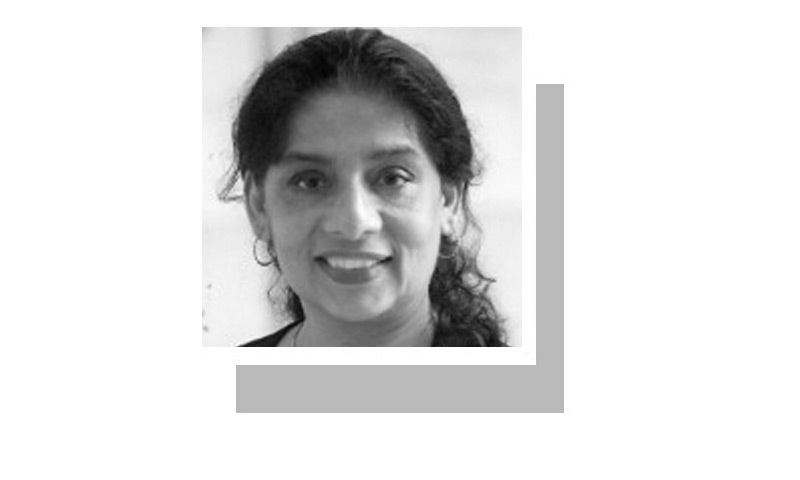
THIS month, a 60-year-old woman with chest pain, after being shunted around Lahore’s three major city hospitals, died on the corridor floor of Jinnah hospital. Death is an event of high probability in untreated heart attacks. She had come from Kasur, where according to all government documents there is a district-level well-functioning primary and secondary healthcare system.
This episode and similar ones are common. Last year, in Karachi, an injured young man was turned away from three public-sector hospitals. The staff at Abbasi Shaheed said they lacked the ability to treat him; Jinnah Hospital referred him to its cardio section, then told him to go to Liaquat National. The victim died as he reached that hospital. He was being transported in a rickshaw and not a well-equipped ambulance.
The reactions to such events are also predictable, as happened in the case of the woman from Kasur. Since health services are the responsibility of the provincial governments, the Punjab government ‘sprang’ into action, once the video of the woman made it to the media outlets, and as is usual the Jinnah hospital superintendent was fired — the fifth to be fired in the last five months for mostly similar things.
Why is the hospital superintendent suspended? Is he responsible? Well, if not him, who is responsible for this woman’s death?
I, said the Jinnah Hospital Emergency Room nurse because I did not know to begin treatment on time or what to do. I, said the ambulance driver for I had no instructions/systems to bring her to the appropriately equipped tertiary care city hospital.
Who is responsible for the Kasur woman’s death?
I, said the pharmacist for I gave expired medicines to treat the high blood pressure that is a risk factor for heart attacks. I, said the doctor at the government’s rural health centre in Kasur. I was absent most of the time, and neither was there any medicine for her high blood pressure.
I, said the private hospital in Kasur for I have no specialists or equipment, to treat heart attacks. I, said the provincial ministry of heath, for I have not solved the many problems for doctors who work in the districts. For example, I had probably not paid the doctor on time and he had to come to the secretariat/directorate to collect his salary.
I, said the PMDC for I have a role in regulating the doctor’s postings in the government’s health system and I do no monitoring. I, said the Punjab finance minister because my office pay is also involved in this business of financing the government’s health services in Kasur.
I, said the chief minister’s reform team because as part of the reform strategy I am responsible for implementing and monitoring the service delivery system. I, said the Punjab Healthcare Commission for under the legislative authority of the PHC Act 2010, it is my responsibility to “improve the quality, safety and efficiency of healthcare service delivery for all Public and Private Healthcare Establishments”. And for “developing and enforcing minimum service delivery standards at all levels of healthcare”.
I, said the technical consultant because Punjab health reform is happening according to my recommendations. I have separated the tertiary hospitals from the rest of the district government network, leaving it unmonitored and unsupported, understaffed and unusable, forcing people to come to city hospitals which in turn become overburdened and understandably fall short of beds and staff.
I, said the chief minister for I had collected a state-of-the-art reform team, and technical consultants, given them resources — time and money. Almost $150 million provided by the UK and World Bank from 2013-2018, to make viable plans, and implement them to solve just such problems — and people are still dying for want of hospital beds and ventilators — and doctors.
I, said the PTI, for I, as the opposition have not played my role of engaging constructively with the Punjab government’s health reform effort, in spite of my White Paper of September 2015. I, Samia Altaf, for I have been unable to convince the Punjab government that the health system reform being implemented is wrong, it will make things worse. (Punjab health strategy meeting July 2013). It will not improve health services for common citizens in spite of the chief minister’s articulated desire, and his genuine efforts to do so.
We, the parliament committees for: national health services regulations and coordination; human rights; planning development and reforms; and oversight committee. We, for being asleep, even after the May 2016 meetings, when over tea and cakes, we promised to provide oversight and hold the government accountable (UNDP Report: Parliament’s Power to Hold Government to Account: Realities and Perspectives on Oversight.)
So, why is the hospital superintendent the only one being fired?
The writer is a public health physician and author of So Much Aid, So Little Development: Stories from Pakistan.
Published in Dawn January 29th, 2017













































